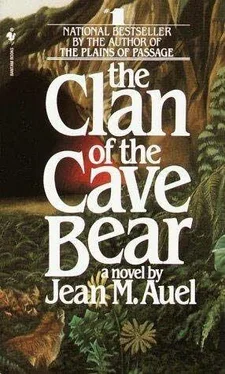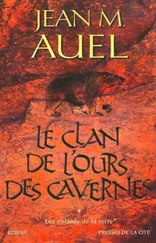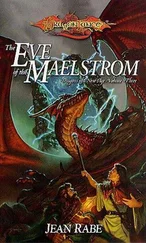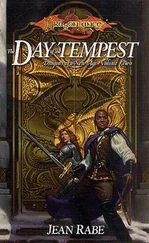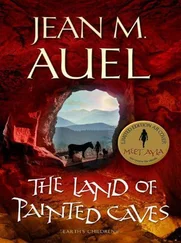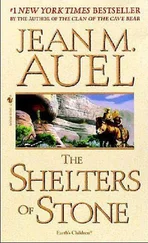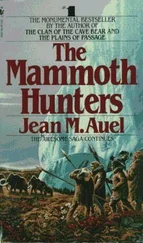Iza spread out her fur wrap and put the child on it, then hurried to help the other women. She was worried about the girl. Her breathing was shallow and she hadn’t roused; even her moans came less frequently. Iza had been thinking about how to help the child, considering the dried herbs she carried in her otter-skin pouch and while she gathered wood, she looked over the plants growing in the vicinity. To her, whether it was familiar or not, everything had some value, medicinal or nutritional, but there was little she couldn’t identify.
When she saw long stalks of iris ready to bloom on the marshy bank of the little creek, it settled one question and she dug up its roots. The three-lobed hop leaves twining around one of the trees gave her another idea, but she decided to use the powdered dry hops she had with her, since the conelike fruit would not mature until later. She peeled smooth grayish bark from an alder shrub growing near the pool and sniffed it. It was strongly aromatic and she nodded to herself as she put it in a fold of her wrap. Before she hurried back, she picked several handfuls of young clover leaves.
When the wood was gathered and the fireplace set, Grod, the man who walked in front with Brun, uncovered a glowing coal wrapped in moss and stuffed into the hollow end of an aurochs horn. They could make fire, but while traveling through unknown territory, it was easier to take a coal from one campfire and keep it alive to start the next one, than to try to start a new fire each evening with possibly inadequate materials.
Grod had nurtured the burning ember anxiously while they traveled. The hot coal from the fire of the night before had been started by a hot coal from the previous evening’s fire and could be traced back to the fire they had rekindled on the remains of the fireplace at the mouth of the old cave. For the rites to make a new cave acceptable for residence, they needed to start the fire from a coal they could trace back to their old home.
Maintenance of the fire could only be entrusted to a male of high status. If the coal died out, it would be a sure sign that their protective spirits had deserted them, and Grod would be demoted from second-in-command to the lowest-ranked male position in the clan; a humiliation he did not care to suffer. His was a great honor and a heavy responsibility.
While Grod carefully placed the bit of burning charcoal on a bed of dry tinder and blew it into flame, the women turned to other tasks. With techniques passed down for generations, they quickly skinned the game. A few moments after the fire was blazing well, meat skewered with sharp green sticks set over forked branches was roasting. The high heat seared it to hold in juices, and when the fire died down to coals, little was lost to the licking flames.
With the same sharp stone knives they used to skin and cut the meat, the women scraped and sliced roots and tubers. Tightly woven waterproof baskets and wooden bowls were filled with water, and then hot stones were added. When cooled, the stones were put back in the fire and new ones were put in the water until it boiled and the vegetables cooked. Fat grubs were toasted crisp and small lizards roasted whole until their tough skins blackened and cracked, exposing tasty bits of well-cooked flesh.
Iza made her own preparations while helping with the meal. In a wooden bowl that she had chipped out of a section of log many years before, she started water boiling. She washed the iris roots, chewed them to a pulp, and spit them into the boiling water. In another bowl-the cup-shaped piece from the lower jaw of a large deer-she crushed clover leaves, measured out a quantity of powdered hops into her hand, tore the alder bark into shreds, and poured boiling water over it. Then she ground hard dry meat from their preserved emergency ration into a coarse meal between two stones and mixed the concentrated protein with water from cooked vegetables in a third bowl.
The woman who had walked behind Iza cast an occasional glance her way, hoping Iza would volunteer some comment. All the women, and the men, though they tried not to show it, were bursting with curiosity. They had seen Iza pick the girl up, and everyone had found a reason to walk near Iza’s fur after they made camp. Speculation ran high about how the child happened to be there, where the rest of her people were, and mostly, why Brun had allowed Iza to take a girl along who was obviously born to the Others.
Ebra knew better than anyone the strain Brun was feeling. She was the one who tried to massage the tension out of his neck and shoulders, and she was the one who bore the brunt of his nervous temper, so rare in the man who was her mate. Brun was known for his stoic self-control, and she knew he regretted his outbursts, though he would not compound his transgression by admitting it. But even Ebra wondered why he had allowed the child to come with them, especially when any deviation from normal behavior might increase the anger of the spirits.
As curious as she was, Ebra asked no questions of Iza, and none of the other women had enough status to consider it. No one disturbed a medicine woman when she was obviously working her magic, and Iza was in no mood for idle gossip. Her concentration was directed at the child who needed her help. Creb was interested in the girl, too, but Iza welcomed his presence.
She watched with silent gratitude while the magician shuffled over to the unconscious child, looked at her thoughtfully for a while, then leaned his staff against a large boulder and made flowing one-handed motions over her, a request to benevolent spirits to assist in her recovery. Illness and accidents were mysterious manifestations of the war of the spirits, fought on the battleground of the body. Iza’s magic came from protective spirits who acted through her, but no cure was complete without the holy man. A medicine woman was only an agent of the spirits; a magician interceded directly with them.
Iza didn’t know why she felt such concern for a child so different from the clan, but she wanted her to live. When Mog-ur was through, Iza lifted the girl in her arms and carried her to the small pool at the foot of the waterfall. She submerged all but her head and washed away dirt and caked mud from the thin little body. The cool water revived the youngster, but she was delirious. She tossed and writhed, calling out and mumbling sounds like none the woman had ever heard before. Iza held the girl close as she walked back with her, making soothing murmurs that sounded like soft growls.
Gently, but with experienced thoroughness, Iza washed the wounds with an absorbent piece of rabbit skin dipped in the hot liquid in which the iris root had boiled. Then she scooped out the root pulp, put it directly on the wounds, covered it with the rabbit skin, and wrapped the child’s leg in strips of soft deerskin to hold the poultice in place. She removed the mashed clover, the shredded alder bark, and stones from the bone bowl with a forked twig, and set it to cool beside the bowl of hot broth.
Creb gestured inquiringly toward the bowls. It was not a direct query-not even Mog-ur would question a medicine woman directly about her magic-it only indicated interest. Iza didn’t mind her sibling’s interest; he more than anyone appreciated her knowledge. He used some of the same herbs she did for different purposes. Except for Clan Gatherings where there were other medicine women, talking to Creb was the closest she could come to a discussion with a professional colleague.
“This destroys the evil spirits that make infection,” Iza motioned, pointing to the antiseptic iris-root solution. “A poultice of the root draws out poisons and helps the wound heal.” She picked up the bone bowl and dipped in a finger to check the temperature. “Clover makes the heart strong to fight evil spirits-stimulates it.” Iza used a few spoken words when she talked, but primarily for emphasis. The people of the Clan could not articulate well enough for a complete verbal language, they communicated more with gestures and motions, but their sign language was fully comprehensive and rich with nuance.
Читать дальше
